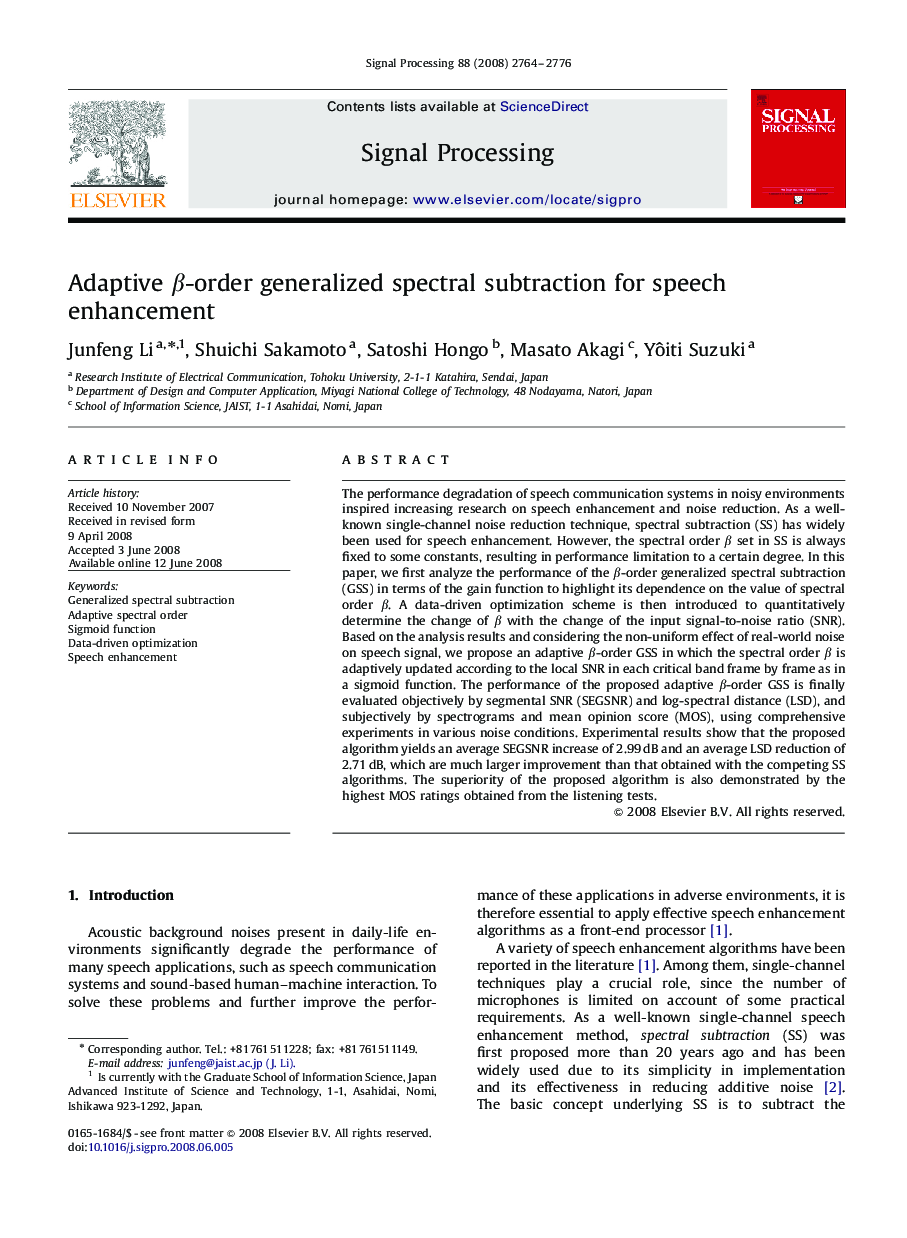| Article ID | Journal | Published Year | Pages | File Type |
|---|---|---|---|---|
| 564595 | Signal Processing | 2008 | 13 Pages |
The performance degradation of speech communication systems in noisy environments inspired increasing research on speech enhancement and noise reduction. As a well-known single-channel noise reduction technique, spectral subtraction (SS) has widely been used for speech enhancement. However, the spectral order ββ set in SS is always fixed to some constants, resulting in performance limitation to a certain degree. In this paper, we first analyze the performance of the ββ-order generalized spectral subtraction (GSS) in terms of the gain function to highlight its dependence on the value of spectral order ββ. A data-driven optimization scheme is then introduced to quantitatively determine the change of ββ with the change of the input signal-to-noise ratio (SNR). Based on the analysis results and considering the non-uniform effect of real-world noise on speech signal, we propose an adaptive ββ-order GSS in which the spectral order ββ is adaptively updated according to the local SNR in each critical band frame by frame as in a sigmoid function. The performance of the proposed adaptive ββ-order GSS is finally evaluated objectively by segmental SNR (SEGSNR) and log-spectral distance (LSD), and subjectively by spectrograms and mean opinion score (MOS), using comprehensive experiments in various noise conditions. Experimental results show that the proposed algorithm yields an average SEGSNR increase of 2.99 dB and an average LSD reduction of 2.71 dB, which are much larger improvement than that obtained with the competing SS algorithms. The superiority of the proposed algorithm is also demonstrated by the highest MOS ratings obtained from the listening tests.
